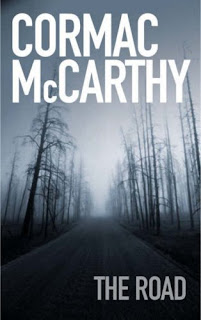by staff writer and agencies
NEW YORK -- Take 4 simple letters of the alphabet -- L, F, C and i -- and combine them with a hyphen with a nod to the assonance of the sci-fi term, mix them in a literary stew of overlapping genres and you've got the latest reading (and writing) platform of the Anthropocene: "cli-fi."
It's a shortening of ''climate fiction,'' of course, regarding the longer, more formal name of the genre, and the even longer one of ''climate-change fiction.'' For the past 5 years or so, thanks to an often bemused but always respectful and encouraging media pool of website editors, newspaper reporters, literary critics, book reviewers and headline writers, the 5-letter term has caught on. In a big way. Worldwide.
And not just in the Anglophone world: ''cli-fi'' spelled in the same way as we spell it in English -- even with the hyphen -- has started to appear in news articles and literary websites in French, German. Swedish, Italian, Norwegian, Spanish and even Chinese. It's gone global.
Thanks to its closeness in spelling and pronounciaton ot its literary cousin of sci-fi, the rising and popular cli-fi genre term has found a home along literary critics and novelists in a dozen countries, and a recent wire service report from Agence France Press (AFP, the French News Angency) reported on how cli-fi was making inroads among publishers and literary agents at the recent 2018 Frankfurt Book Fair in Germany.
Since 2012, the global landscape of cli-fi cultural websites has been chock full of news about thousands of fictional works of storytelling, in print and on the silver screen, talking about the global impact of human-induced climate change. In academia as well as in pop culture, this rapidly growing body of novels and movies is now commonly referred to by the catchy linguistic portmanteau of ''cli-fi,'' a term now monitored on social media and the internet worldwide.
That cli-fi has transitioned from a colloquial term into a cultural buzzword can be seen, to name but a few examples from a long list, by its recent addition to the Oxford Dictionaries, its appearance in numerous international conferences and academic publications, the blogs of dozens of novelists and literary critics and Amy Brady’s monthly ''cli-fi trends'' column, “Burning Worlds,” examining cli-fi novels and trends for the Chicago Review of Books, and the increasing inclusion of cli-fi as a label in newspaper and internet articles and headlines and marketing strategies by publishers and movie studios.
In addition to the many cli-fi mentions in the media worldwide, there are also journalistic mentions of cli-fi novels and movies. Now more than 100 colleges and universities worldwide offer classes in cli-fi novels and movies. This is big. This is unstoppable. And after the most recent IPCC climate report from the U.N. climate group, with its devastating and at times unspeakable predictions for the next 80 years, cli-fi novels and movies are more needed than ever before.
While there is no general agreement on how cli-fi is to be defined, the term itself may be understood as a simple abbreviation of the longer term of ''climate fiction.'' It is an independent, standalone literary genre, as some literary critics insist it is, or perhaps a subgenre of ''science fiction'' as some sci-fi historians say. Whatever, cli-fi is here and it is here to stay. We can thank an open-minded and encouraging media landscape for that.
Constant PR work by an informal group of cli-fi boosters in London and Toronto from April 2012 onward has led to cli-fi's rise in public awareness, and that led to two major New York Times articles in 2014 (one on April and one in July) and in 2017 to Dr Brady's monthly ''cli-fi trends'' column in the The Chicago Review of Books which has also been picked up by the Yale Climate Communications website.
++++++++++++++++++
POST-SCRIPT:
Why do we humans procrastinate? It's because we think, psychologically, of our future selves as ''strangers''. So in taking steps to fight runaway #AGW, we therefore procrastinate because we don't see the future as *our* future.
We are "Procrastination Nation."

No comments:
Post a Comment